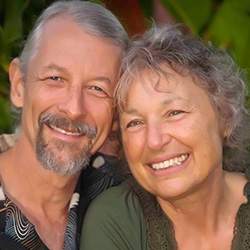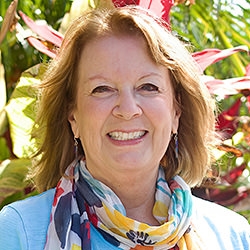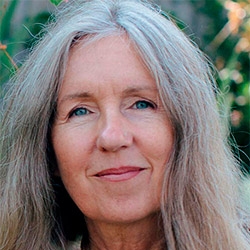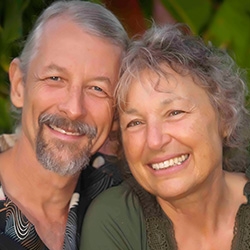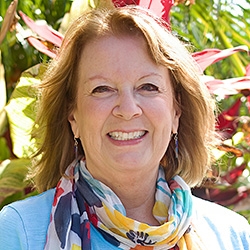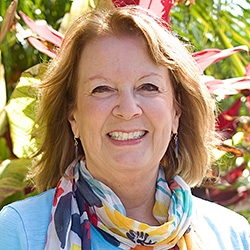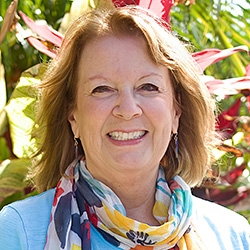

Search Results: disconnection
-
Learn to recognize four forms of thinking and speaking that are likely to lead to disconnection.
-
Mary Mackenzie shares how Marshall Rosenberg's Four D's of Disconnection live in her. Join Mary and learn how you can reframe the 4 D's to enhance connection.
-
We all blow it sometimes. Maybe we are triggered and react in ways we regret. Or we unknowingly say or do something that unexpectedly touches a nerve for someone else. Either way, how do we heal the disconnection? In this session, you'll learn how to integrate skills for repairing relationships.
-
-
How do our nervous systems sync during connection, and what happens when disconnection occurs? In this Sarah Peyton video, we explore the profound interdependence of human relationships through the lens of Nonviolent Communication (NVC).
-
When working to repair a relationship after conflict, and after reaching mutual care and understanding, you’re more likely to prevent future disconnection in similar situations by coming to clear, specific, and actionable agreements. Ensure requests for agreements come from a negotiable needs-based dialogue. Clarify specifics and plan to revisit agreements to assess their effectiveness.
-
"Falling out of love" is a misleading concept that can lead to feelings of helplessness in relationships. The initial intense phase of love gradually gives way to the need for intentional effort and communication. Unrealistic relationship expectations can erode connection, causing the perception of falling out of love. To address this, we can ask key questions and seek clarity to attend to unmet needs and maintain a healthy connection.
-
Our craving for love, acceptance, and approval can lead us to show only parts of ourselves and hide others. This lack of authenticity breeds disconnection and mistrust, leading to those very needs not being met. Once I accept myself, being authentic is easier. And then people in my life can love me for who I really am, warts and all.
-
When you say yes, check if you are saying it out of submission. Similarly, when you say no, are you saying it genuinely or out of rebellion? Marshall Rosenberg calls this a loss or erosion of goodwill which can destroy or undermine relationships. In this video, Rachelle Lamb shares how submission and rebellion in communication can diminish your power.
-
Sometimes the empathy you offer may stimulate disconnect or a sense of boundary crossing for the other person. To identify what might have contributed to the disconnect you can look for the signs, the level of attunement and the context, and examine what's happening in you. Read on for more.
-
Listen to Jim and Jori Manske share how we are conditioned to disconnect from our own feelings and how we can unlearn this habit to experience more full and rich inner lives.
-
Trainer tip: When you tell yourself that you have to do something, you're more likely to disconnect yourself from the needs you’re trying to meet, and also diminish the joy in your life. Instead, experiment with translating your “shoulds” and “have tos” into the need you are trying to meet.
-
Praise may disconnect us from our own confidence, intrinsic motivation, or discernment. It may lead to perfectionism, people pleasing, codependency, a tendency to criticize others or fix others, and more. Instead, without evaluative words we can sincerely share what we specifically liked about what they did, and what needs were met for us.
-
Relationship repair means building connection and care after disconnect and unmet needs. It requires intention to connect and take responsibility for your behavior by naming what didn’t work, offering empathy, and making a plan to do something differently next time. When you have enough empathy to find care and curiosity for them, reflect the other person's observation, thoughts, feelings, needs and requests. Focus on this more than on details of the event.
-
As a beginner in NVC, you might find your attempts to practice your NVC only increases conflict, disconnection and upset in your interactions with people. Or perhaps people start seeing you as inauthentic. From there, you may find yourself sinking deeper into self-judgement. In this article, Jim Manske shows us how to shift these potential unintended outcomes, into deeper NVC consciousness that brings in more warmth, presence and open-hearted connection.
-
Trainer Tip: Do you sometimes feel lonely and disconnected from others? If so, look at how you may be participating in supporting that outcome and what you can do differently. For instance, if you want support or connection - but prioritize looking composed no matter how sad, hurt or angry you feel, you may shield yourself from authentically and vulnerably asking those things. Instead, make those requests.
-
Trainer Tip: Without knowing our feelings, its harder to live fully present, take care of ourselves, and make sound decisions. If its difficult for you to know what you feel and to express your feelings, consider reviewing a list of feelings, practice expanding your feelings vocabulary, and naming your feelings.
-
- Gain a deeper understanding of trauma through the lens of NVC
- Learn how to connect with ALL needs, even when we’ve been taught to suppress some of them
- Grow capacity to creatively move towards our deepest longings interdependently
- Discover how you can call people back to life when they are in the thick of patterned behavior
-
When avoidance coping or positive thinking sidesteps challenges, internal and external injustice and unrest also rises as we sidestep our values and integrity. It leaves us in sadness and distress. What's unacknowledged impacts ourselves and others undesirably. To live nonviolently we need to be in touch with what's real. With resonance we can more likely be with what's true, and trust our resilience and inner alignment.
-
Why is it so difficult to change our patterns even when we want to, even when we experience shame or despair about them? Arnina Kashtan offers some of the common pitfalls and concrete steps to overcome them in the future.

Quick Links
Subscription Preferences
Stay In Touch!
Looking for ways to keep up with NVC Academy news, get special offers, free resources, or words of inspiration? Here are five ways to stay engaged:

